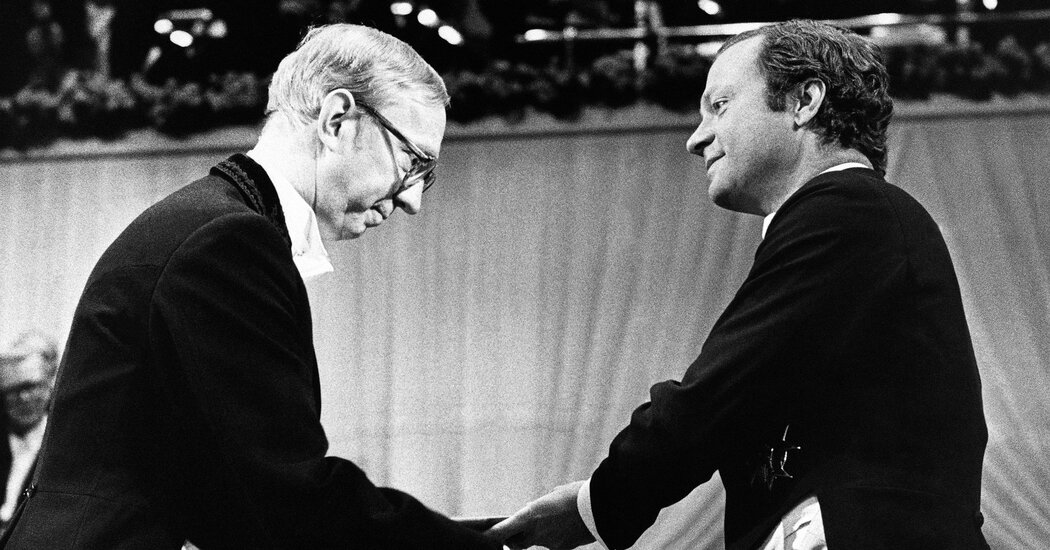He shared the 1982 Nobel Prize in medicine for breakthrough discoveries that led to drugs that treat inflammation, glaucoma and allergies.
Dr. Bengt Samuelsson, a biochemist who shared the 1982 Nobel Prize in medicine for helping to define the biological activities of potent hormone-like molecules in the body called prostaglandins, and whose breakthrough discoveries led to drugs that treat inflammation, glaucoma and allergies, died on July 5 at his home in Molle, on the west coast of Sweden. He was 90.
His daughter Astrid Samuelsson Norhammar said the cause was heart disease.
Dr. Samuelsson discovered multiple lipid mediators, or molecules, that include prostaglandins and several related subtypes of the substances — all of which play critical roles in the body’s organs and tissues. Some cause uterine contractions, regulate blood pressure and body temperature, and trigger inflammation; others are important in blood clotting, asthma, allergies, kidney stones and gallstones.
Dr. Samuelsson began his research into prostaglandins and related molecules in the early 1960s at the Karolinska Institute, a renowned medical university in Stockholm. But the field itself had begun decades earlier, in the 1930s, also at the institute.
Dr. Ulf von Euler was the first to discover biologically active lipid molecules in semen, which he named prostaglandins based on his assumption that the molecules were unique to the prostate gland. He won a Nobel Prize in 1970.
Dr. Samuelsson would later prove that dozens of these molecules exist, and that they play important roles in health, disease and injuries.
The rigor, creativity and curiosity that Dr. Samuelsson brought to his research made him a role model for generations of scientists.
